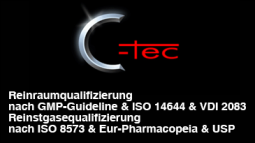- New building
New Fraunhofer Center for Sensor Intelligence in Saarland
Saarland’s Minister President Tobias Hans and the President of the Fraunhofer-Gesellschaft, Prof. Reimund Neugebauer, signed an agreement today to establish the Fraunhofer Center for Sensor Intelligence. It will address the entire innovation chain in the pioneering field of intelligent sensor technology, bring together core areas of expertise from the regional research landscape and develop them further. The center will be housed in a new building on the campus of Saarland University as part of a joint project between the Fraunhofer Institute for Biomedical Engineering IBMT and the Fraunhofer Institute for Nondestructive Testing IZFP.
Measurement data captured by smart sensors enables knowledge-based decisions. To put it simply, a sensor can make decisions, control processes or trigger actions by itself. This is particularly important when it comes to optimizing industrial and medical technology manufacturing processes. In order to further advance developments in this field of technology, Saarland’s Minister President Tobias Hans and the President of the Fraunhofer-Gesellschaft, Prof. Reimund Neugebauer, signed a joint agreement today at the Saarland State Chancellery to establish the Fraunhofer Center for Sensor Intelligence ZSI.
The opening of the new Fraunhofer center will see the emergence of a highly innovative field of research involving intelligent sensor technology that builds on the core areas of expertise of the two Saarland-based Fraunhofer institutes: Fraunhofer IZFP and Fraunhofer IBMT. The center’s particularly application-oriented approach to research is set to demonstrate the potential of these sensor systems in the sectors of materials, production and healthcare. In addition, the joint research and demonstration center will address the specific issues associated with industrial digitalization and develop solutions for Saarland’s economy in the field of complex sensor systems.
Today’s agreement is also a key investment in Saarland as a research location. The joint growth initiative is a central development measure in the context of Saarland’s innovation strategy in the key areas of informatics, smart production & automotive and life science & material science.
Minister President Tobias Hans highlighted the opportunities that Fraunhofer ZSI will create for this research location: “Fraunhofer IZFP and IBMT are key elements of our research landscape. This cooperation to establish the new Fraunhofer center will provide considerable impetus for implementing our innovation strategy and tackling the current challenges of structural transformation, for example, through the introduction of highly innovative, automated processes in the automotive sector. This approach will safeguard industrial jobs, create new, modern jobs for Saarland’s economy and provide new arguments for settling in the region, far beyond the high-tech jobs at Fraunhofer ZSI. The integration of Fraunhofer ZSI into the existing research landscape on the campus of Saarland University will create a unique competence cluster for digital transformation. We support this joint growth initiative and Fraunhofer’s deep commitment to the state of Saarland. In this way, we are creating a center of excellence for a research topic of international importance, but with a clear focus on the digital transformation of Saarland’s economy.”
“Whether it's in the pharmaceutical industry, mechanical engineering or materials research: The further development of intelligent sensors is a key prerequisite for the additional optimization of numerous technologies and processes to strengthen and expand our position in the face of international competition,” explained Prof. Reimund Neugebauer, President of the Fraunhofer-Gesellschaft. “From research to product implementation, transfer and application, Fraunhofer ZSI will cover the entire innovation chain of intelligent sensor development, thus facilitating a real innovation drive. In addition, the new center will combine and expand the core areas of expertise of this outstanding regional research landscape. This will ensure that the region plays a leading international role in the field of intelligent sensors, with a focus on future-proof and sustainable technology.”
The plan is to establish Fraunhofer ZSI on the campus of Saarland University. The new building and its facilities, which will cost around 35 million euros, are to be funded from federal, state and EU Structural Funds (ERDF) resources. In addition, the budget for personnel and projects for the five-year start-up phase of Fraunhofer ZSI is expected to be around 29 million euros, which will be funded by the Fraunhofer-Gesellschaft, the state of Saarland and other third-party donors. After the five-year start-up phase, up to 80 additional jobs are expected to be created and Fraunhofer ZSI will operate sustainably under the established Fraunhofer financing model of the federal and state governments in a 90:10 ratio.
Fraunhofer Institute for Nondestructive Testing IZFP
Fraunhofer IZFP is an internationally networked research and development institute in the field of applied, industry-related research. It is based in Saarbrücken. The activities of this Fraunhofer institute, founded in 1972, center around the development of complex, cognitive sensor and data systems for safety, sustainability and efficiency. These systems are tailor-made for the optimization of individual cycle phases or the entire cycle and are then put into practical application in cooperation with technology companies. The institute’s expertise in the field of technical testing physics and sensor physics is complemented by technologies and concepts from AI research. Fraunhofer IZFP currently employs around 120 permanent members of staff.
Fraunhofer Institute for Biomedical Engineering IBMT
Fraunhofer IBMT is a technology and device developer in the international growth market of life sciences, health research and medicine/medical engineering. Since its foundation in 1992, it has been working closely with customers from the world of business as well as public and private clients in medical biotechnology, stem cell tech-nology & cryotechnology, bioprocesses & bioanalytics and ultrasound, both nationally and internationally. Fraunhofer IBMT’s core areas of expertise include non/minimally invasive and miniaturized methods, intelligent sensors, implants, (medical) biotechnology, cryobio- and nanotechnology, biobanks, stem cell research and technology, au-tomatable laboratory technologies, mobile special laboratories (S3, GMP, GCLP etc.), biomedical data science & bioethics. Fraunhofer IBMT currently has around 150 employees.
Fraunhofer-Gesellschaft zur Förderung der angewandten Forschung e.V.
80686 München
Germany









